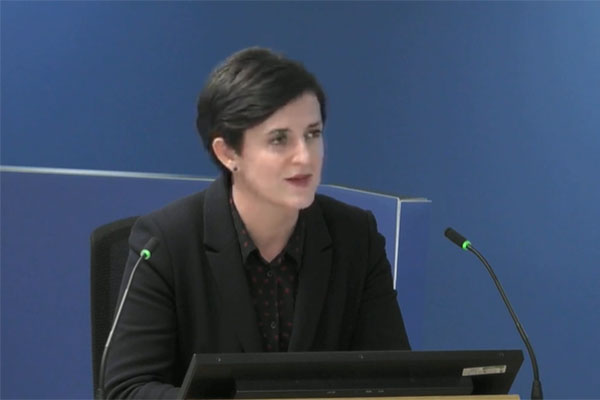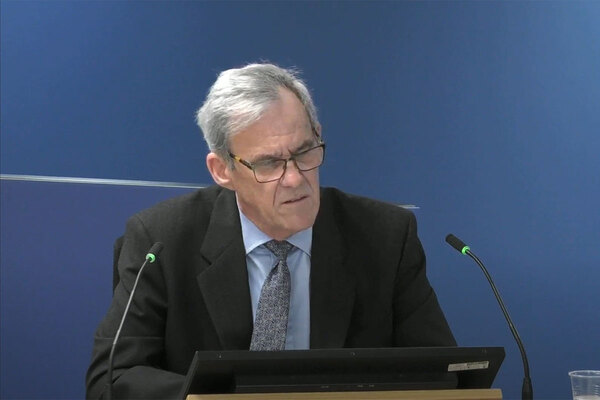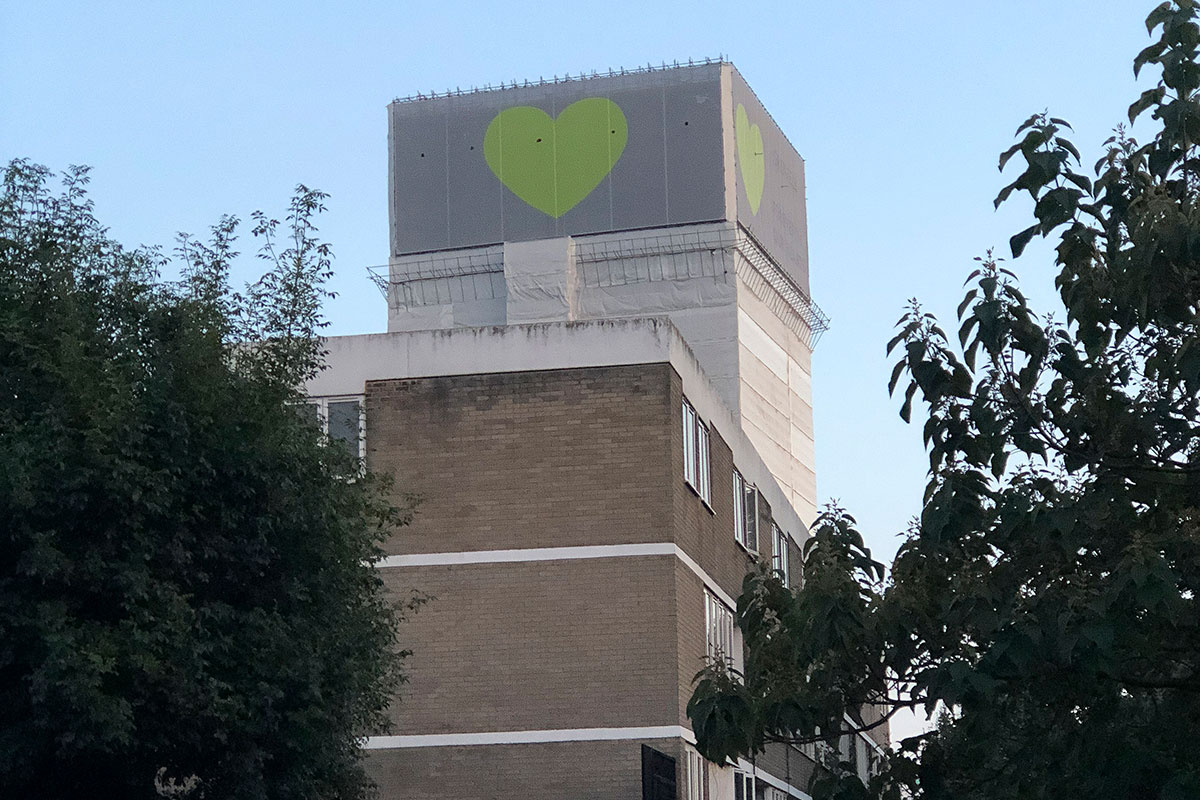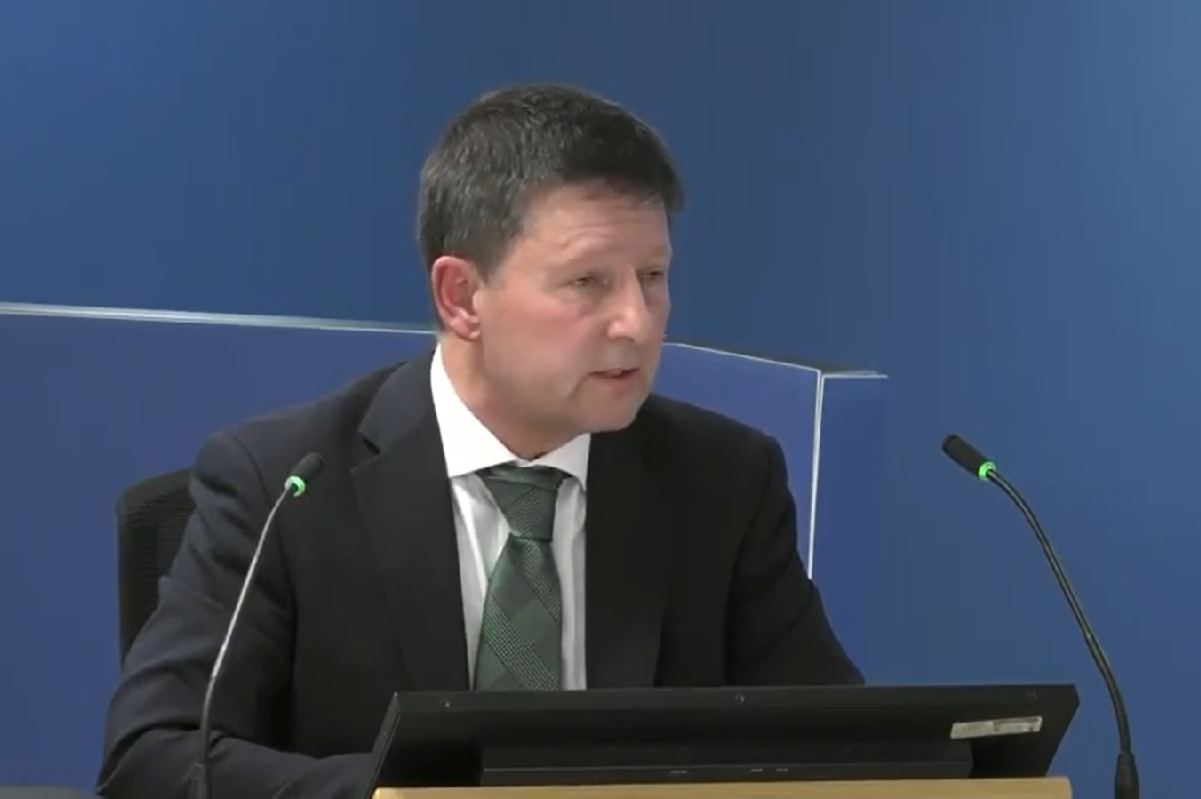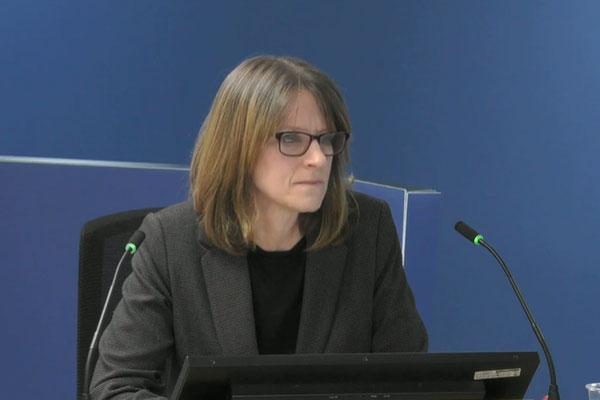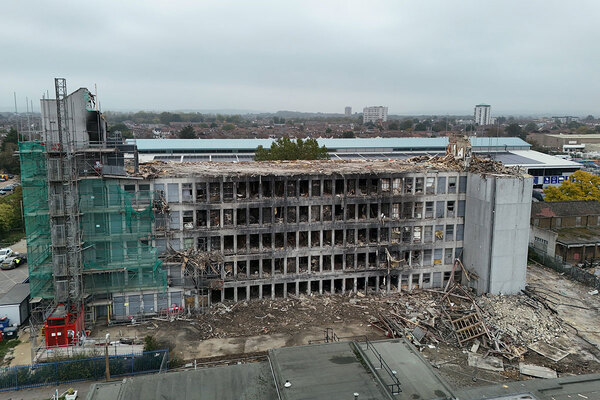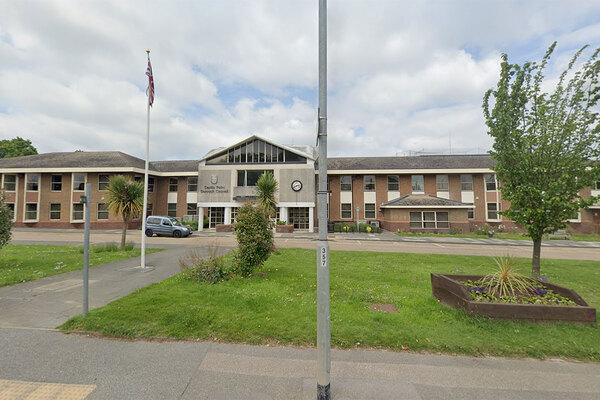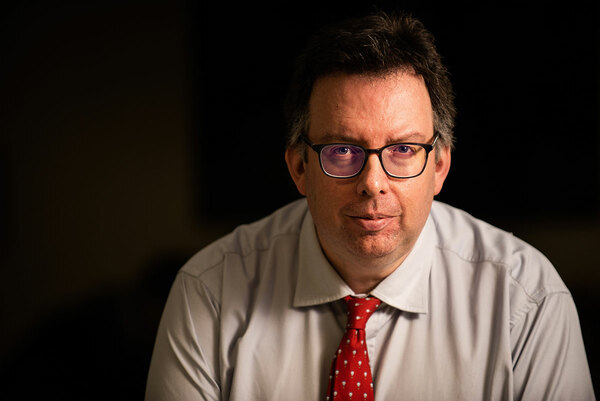No RBKC staff had central government emergency training in 3.5 years before Grenfell fire
No Royal Borough of Kensington and Chelsea (RBKC) staff attended emergency training supplied by central government in the three-and-a-half years before the Grenfell Tower fire, the inquiry into the disaster heard today.
Only two staff members attended training by the Emergency Planning College (EPC), which delivers training on behalf of the Cabinet Office, in 2014, while none attended in 2015, 2016 or 2017.
The details emerged as Katharine Hammond, who served as director of the Civil Contingencies Secretariat (CCS) between 2016 and 2020, began her evidence to the Grenfell Tower Inquiry.
The CCS is the executive department of the Cabinet Office responsible for emergency planning in the UK. It serves as a co-ordinator for planning, response and recovery, rather than having a more direct role.
The inquiry was shown starkly different training figures between Westminster Council and RBKC staff in a CCS spreadsheet with numbers of category one and category two responders who attended EPC courses between 2014 and 2017.
Westminster sent 47 staff in 2014, 38 in 2015, two in 2016, and one in 2017.
Richard Millett QC, lead counsel to the Grenfell Tower Inquiry, said: “Would you expect a central London authority, RBKC, to have had no EPC training to any of its staff on contingency planning in the three-and-a-half years before the Grenfell Tower fire?”
Ms Hammond said: “I would expect them to have staff trained to an appropriate standard, but the EPC is not the only supplier, and I have no information on the existing qualifications of their staff.”
Mr Millett also presented a spreadsheet of numbers of central government staff who attended EPC training between 2014 and 2017.
Only four delegates from what was then called the Department for Communities and Local Government (DCLG) attended the training over the course of three-and-a-half years, while the same number from the Home Office attended the training over the same period.
This was compared to 94 Cabinet Office staff members. Asked if the low figures were “standard”, Ms Hammond said she would have to look back at figures from previous years.
On the difference in the numbers, Ms Hammond said that the Cabinet Office has a “relatively high” turnover of staff, the vast majority of whom would attend the EPC courses “as a matter of routine”.
Ms Hammond was also asked about the National Risk Assessment (NRA), produced by the CCS, which is a classified cross-government document that assesses the impact and likelihood of the major risks the country could face.
The inquiry has previously heard that the London Risk Register, a document that provides a list of the principal risks that may affect the city as a whole, failed to include an urban tower block fire.
The most recently updated NRA at the time of the Grenfell Tower fire also failed to identify an urban tower block fire as a specific risk.
Ms Hammond admitted that the CCS could not find evidence that the risk of a tower block fire had been assessed at all.
Mr Millett said: “It’s the case… that even following the Lakanal House fire in July 2009, the Shirley Towers fire in Southampton in 2010, or the Adair Tower fire in October 2015, within RBKC itself, no consideration was given centrally by the CCS to whether an urban tower block fire should be included in the NRA?”
Ms Hammond said: “It’s correct that one was not added to the NRA… I’m afraid we couldn’t find evidence of consideration of it. So I can’t be definitive to say that that consideration didn’t happen.”
Asked why no consideration was given to it, she said: “In the absence of evidence of consideration or otherwise, I can’t really assist on that point.”
The inquiry heard that an updated version of the NRA – now the National Security Risk Assessment – in 2019 included the risk of a high-rise residential block fire.
In her statement, Ms Hammond said she was involved in discussions about the inclusion of the tower block fire risk.
“Although we continued to be of the view that the outcomes of this risk are already covered by the existing NRPAs, we nevertheless took the view that the prominence of the Grenfell Tower fire in the national consciousness meant that it could not be omitted,” she said.
Mr Millett said: “In a nutshell, was it the case that you included the Grenfell Tower fire, not because it wasn’t adequately catered for in the 2016 version of the NRA, but for political reasons?”
Ms Hammond denied that this was the case. “But because we knew from contact between my colleagues and LRFs [local resilience forums] that they would be thinking specifically about this type of risk and as it says in the statement because we wanted to be helpful to them in doing so.”
Mr Millett said: “But the risk profile hadn’t changed between the 2016 and 2019 versions, had it?”
Ms Hammond said that the understanding of the risk had changed, but that the primary reason for including it “was to help local planners”.
Ms Hammond was questioned numerous times about the government’s failure to activate COBR (Cabinet Office briefing rooms) – or as it is commonly known, COBRA.
The purpose of activating COBRA is to co-ordinate different departments and agencies in response to emergencies.
Government did not enact the procedure, but instead had “ad hoc ministerial meetings”, convened by the CCS, to liaise on the disaster. Ms Hammond repeated throughout that there was “nothing different in practical terms” between the meetings and COBRA meetings.
She later agreed that the main difference between activating COBRA and holding ministerial meetings was that the former was when the government had a leading role in the emergency response.
“The central government role at that point was emerging and not yet clear,” Ms Hammond said.
In the morning the inquiry heard evidence from Emma Spragg, director for health and local crisis response at the British Red Cross (BRC) since 2016.
Ms Spragg is responsible for a team that provides help to people in an emergency situation. She works with partner organisations on plans and preparedness.
The inquiry previously heard that RBKC staff failed to arrive at rest centres until 10.30am on the morning of the fire, despite several requests for help from the BRC.
Asked what impact the lack of staff had, Ms Spragg said it led to an “uncoordinated response”, which impacted residents the most.
She said that because the council is supposed to lead on rest centres and ultimately co-ordinate what happens at them, it was “very difficult to know who was in charge, and therefore the sorts of things that were needed”.
“So it was just a very uncoordinated picture and that’s the impact that it had for us.
“The team would find it difficult to know what information was right or where to send people for further help.
“So it had an impact on us but ultimately it was the impact on the residents that was the greatest.”
In her statement she also said that the council gave “insufficient regard” to cater to particular needs, for example people of faith or women, with survivors turning to local churches and mosques for support.
Ms Spragg agreed with an assertion in an email sent on 20 June 2017 from Sue Redmond, interim executive director of adult social care and public health at RBKC at the time of the fire, that the “community engagement has been missing from everything”.
Ms Spragg said that she, on behalf of the BRC and the voluntary sector, was trying to put forward the point that to “provide the right sort of support means you need to understand better the people who need the support”.
“And ideally have that shaped by the people and the community,” she said.
But she said “the structures weren’t there to do that properly”.
“From my perspective at the Red Cross, and one thing we’ve learned from this, is to put roles in place that specifically focus on community engagement.
“But that would need to be part of a bigger structure, bigger infrastructure, with representatives from local authorities and others potentially getting involved because it’s all about building a shared picture,” Ms Spragg said.
She agreed that “ideally” those roles would be “pre-existing”, rather than set up post incident.
“I would hope that there would already be existing connections with communities and understanding of communities and their likely needs in an emergency situation,” she said.
Ms Spragg later said that the BRC has invested in community engagement since the disaster, acknowledging that having people whose role it is to engage with the community in a number of organisations “would have been beneficial”.
The inquiry continues.
Sign up for our weekly Grenfell Inquiry newsletter
Each week we send out a newsletter rounding up the key news from the Grenfell Inquiry, along with the headlines from the week
Already have an account? Click here to manage your newsletters
